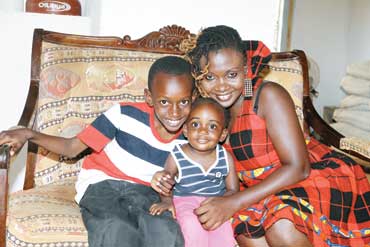×
The Standard e-Paper
Stay Informed, Even Offline
By Gardy Chacha
 |
| Nyota Ndogo with her children |
She was born into a cruel world of destitution. Raised by a devoted mother and singing father in a shantytown, amidst abject poverty and complexities of a world where suffering was a ritual. Food was also hard to come by and life starkly stood as a semi-permeable membrane with an unpleasant tendency to sieve faces that make societies.